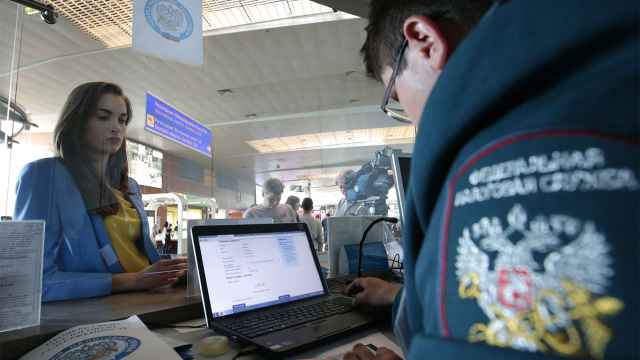The world’s largest crypto exchange Binance said Monday that it has banned Russia-based users from trading in all currencies besides the ruble.
Binance’s restrictions follow reporting by Bloomberg and The Wall Street Journal on a U.S. Justice Department investigation into the company's possible violation of financial sanctions on Russia despite its public commitment to comply with them after the February 2022 invasion of Ukraine.
Russians have increasingly turned to using crypto exchanges after Western sanctions cut off Russian banks from global payment networks.
“Users residing in Russia can trade on Binance P2P only in fiat currency in rubles. Any other fiat currencies are prohibited,” Binance said.
Russian users based outside the country with verified foreign addresses can trade in currencies other than the ruble, the U.S. dollar, the euro and the Ukrainian hryvnia, the company added in its statement.
Over the weekend, Binance said it had removed five Russian banks under U.S. sanctions from its P2P platform.
Two of the sanctioned banks — Sber and Tinkoff — were reportedly renamed to “green” and “yellow” under Binance’s P2P payment options
The U.S. Treasury Department has flagged peer-to-peer crypto transactions as potential means of evading sanctions, according to WSJ.
Binance’s peer-to-peer exchange continued to handle substantial ruble trading volumes before the latest restrictions, according to WSJ’s analysis of company websites, user screenshots and messages in official chat groups.
Russia’s Central Bank recorded nearly $430 million in monthly peer-to-peer trades between October 2022 and March 2023.
In April 2022, Binance stopped serving cryptocurrency wallets that were worth 10,000 euros or more and were registered to Russian passport holders.
A Message from The Moscow Times:
Dear readers,
We are facing unprecedented challenges. Russia's Prosecutor General's Office has designated The Moscow Times as an "undesirable" organization, criminalizing our work and putting our staff at risk of prosecution. This follows our earlier unjust labeling as a "foreign agent."
These actions are direct attempts to silence independent journalism in Russia. The authorities claim our work "discredits the decisions of the Russian leadership." We see things differently: we strive to provide accurate, unbiased reporting on Russia.
We, the journalists of The Moscow Times, refuse to be silenced. But to continue our work, we need your help.
Your support, no matter how small, makes a world of difference. If you can, please support us monthly starting from just $2. It's quick to set up, and every contribution makes a significant impact.
By supporting The Moscow Times, you're defending open, independent journalism in the face of repression. Thank you for standing with us.
Remind me later.






